
all photos courtesy of The Musebox.
When it turned out that I would be unavailable to conduct this interview myself, the first person who came to my mind as the perfect pinch hitter for the gig was Mickey McCarter. By day, Mickey is a professional journalist, covering homeland security and military affairs for Homeland Security Today and Fox News. On nights and weekends, he is one of DC’s foremost experts on the New Wave and synthpop genres.
Orchestral Manoeuvres in the Dark, founded by UK songwriters Andy McCluskey and Paul Humphreys, led a synthpop revolution from the ‘80s through today in the United Kingdom, consistently charting in the UK top 30 with each of their 11 studio albums, including their very latest History of Modern. McCluskey alone kept the band’s name alive throughout the ‘90s until he and Paul Humphreys reunited for a successful return-to-form last year.
Now the band returns to the United States for the first time in more than 20 years, playing the 9:30 Club on Thursday, March 10. We Love DC caught up with synthpop virtuoso McCluskey recently to talk about Pretty in Pink, the new generation of synthpop musicians, and the sound of the future.
Mickey McCarter: I’m very excited to catch your upcoming show here in Washington, DC! How does it feel to be touring the United States again?
Andy McCluskey: It’s been a long time. The OMD lineup has not played in North America since 1988. As you can imagine, we are really really excited. We have been playing gigs now in Europe for three-and-a-half years. It has gone brilliantly. We have built up a really big following again. The gigs have been brilliant. And we’ve been really trying to get ourselves back to North America, so we are really delighted now that we have a tour coming up.
MM: You promised the United States some dates in 2011 so I was very pleased to see those materialize!
AM: We try not to lie!
MM: Here, you are probably still best remembered for “If You Leave,” which you contributed to the Pretty in Pink soundtrack. How do you feel about that particular song? Do you have any reflections on how that came about?
AM: Certainly, to the casual music fan, Orchestral Manoeuvres in the Dark would be a one-hit wonder because “If You Leave” is head and shoulders above our other songs in terms of chart success in the ‘States.
It came about quite simply because John Hughes was a huge fan of British music. We had been very successful in other parts of the world—particularly Europe—for several years, selling millions of records, but we had been alternative in the United States. So there were people who liked who liked what we were doing. We were asked by John Hughes to write a song for Pretty in Pink. We were really flattered and excited.
So we went down to Paramount Studios; we saw them shooting; and we met Molly Ringwald, Jon Cryer, and John [Hughes]. They gave us a script and they said, “We want a song for the big finale in the prom scene.” We said, great! We went home and we wrote them a fantastic song. We came back with a 2-inch tape, ready to mix it in L.A. prior to a tour we were going to do.
But John was kind of like, “You know what? This is a really good song, but we have tested the film to audiences and they don’t like the ending. So we are going to reshoot the ending with a completely different end. Molly Ringwald is going to end it with Andrew McCarthy’s character now—not Duckie, the Jon Cryer character. So the song doesn’t really make any sense any more. Could you write another one?”
Holy s**t! We have a single day to write another song? Anyway, that’s what we did. We went into a studio in L.A.; we borrowed any equipment we could get our hands on; and we worked until around 4 in the morning. We did a rush demo; we put it on a cassette; and we sent it in to Paramount Pictures. About 9 o’clock in the morning, we were woken up by our manager saying, “John Hughes loves the song! Go back in the studio and finish it!”
MM: Even being an American, I would have never said OMD were a one-hit wonder. There are a lot of very well known songs here, including “Enola Gay,” “Joan of Arc,” and others. If you were to ask people about OMD, they would say you were part of the Second British Invasion that we experienced here with the New Wave and sythpop bands that came over. But it never really took hold in the same way here as it did in the United Kingdom. You practically led a synthpop revolution at home.
AM: I think you are right. It was hard. The American media and the music critics on the radio were quite resistant. They saw it as something lightweight that wasn’t real music or rock-and-roll. It was gay European nonsense. It was a long time before it took hold. When Depeche Mode turned themselves into a stadium synth band, people started paying attention to it. The rest of us never really cracked it to that level. A lot of Americans like their rock music. We were not conforming to their rock stereotype.
MM: I think you guys really started something and there is a whole generation of bands even here in the United States that really have a synthy sound. A lot of these folks are looking to you as an influence. In some press, you’ve been somewhat dismissive of some of the bands that have followed you, but that has to be pretty flattering.
AM: We spent a large part of our early lives trying to be the future, so it was somewhat disappointing when the next generation decided the future sounded more like the past. The rock clichés resurfaced.
Now just like every generation rejects its immediate predecessors, the generation in the new millennium seem to have derided the rock clichés of the ‘90s and have sought out an alternative vision of the future, which seems to be much more related to what people like we were doing 30 years ago. That is really flattering.
I don’t have anything against people being influenced by us or any other band of our generation. The important thing is that you take your influence and you make it into something that is your own and your own voice. There are some really fantastic new electronic artists out there.
MM: Who are some of your favorites right now?
AM: Well, Hot Chip has been around for quite a long time. I love them. Robyn from Sweden is brilliant. She has made a combination of R&B, Scandinavian pop, and electronic music.
And when she gets it right, Lady Gaga is brilliant. “Poker Face” and “Bad Romance” are absolutely fantastic. Some of the rest of her stuff is horrendous, but when she gets it right, she’s brilliant.
Then there are a couple of great bands coming out of England. I’m particularly a fan of a new band called Mirrors, who are just about to release their first LP.
MM: I think the focus on the guitar-rock here keeps you guys sounding really fresh. I personally have all of your albums and I can listen to them any time and I’m still amazed at how new and exciting they sound. Somehow, they get preserved because the focus is elsewhere here.
AM: Thank you for saying that, but I think you have hit on something that is quite relevant there. If you are never completely part of the mainstream or a particular current fashion, then you don’t get tarred with the brush of being out of fashion quite as badly as some. When you try to do your own sound, a distinctive sound, rather than trying to copy everybody else, then you stand a chance of standing outside of the stream of fashion-ability. So it’s exciting to hear you say that. Obviously, we were trying to do our own thing. In fact, we just made a new album and that’s exactly what we were trying to do again: Speak in our own voice that we invented for ourselves 30-odd years ago.
MM: I’m not the first to say this, but the new album History of Modern sounds like classic OMD but it has a modern edge to it. How did you guys capture that?
AM: That’s exactly what we were hoping to achieve. It was important to us that we reestablish our own sound. Even we have times when we wandered away from the place we should have been.
Paul and I agree that it was particularly in our first four albums that we invented our own voice, so we wanted to speak again in that voice. But it was important that we had something to say and that it was going to be said in really strong songs. Then, it was really crucial that we didn’t make a retro-nostalgic album that was some sort of pastiche of our own music. It had to sound like now.
We were fortunate that although Paul and I hadn’t been making OMD music together, we have our own studios; we have been making records; we have been making songs; and we know how to produce a record that sounds current and not like 1981. That is what we were trying to achieve. If you think we did, then I’m delighted to hear it.
MM: My friends and I consider your masterpiece to be Dazzle Ships…
AM: You are hardcore! That was the commercial disaster of the century! That album nearly killed our career but it is now hailed as our masterpiece.
MM: Well, would you take that kind of risk again?
[Silence]
AM: Interestingly enough, after we had done the History of Modern album, Paul and I were standing in my kitchen just a few yards away from where I am actually speaking to you now.
We said, “Okay, we seem to have achieved what we set out to achieve with History of Modern. We have reconnected with our own sound. We have been aware of our place in musical history and fashion history—that’s why it’s called History of Modern. It was the most appropriate title. We looked at each other and said, “Okay, can we actually make the future again?”
So this is a challenge. This is now a challenge. We want to make a new album, but we want to see if we can do something that we consider to be the future. This is going to be harder than doing History of Modern, but that’s the thing about being in a band like Orchestral Manoeuvres in the Dark.
If we were U2, everybody would be happy if we just made another album that sounded like Joshua Tree. We don’t get away with that. They have to be great songs, but they somehow have to make people go, “Woo! That’s a great idea! That’s new! That’s fresh! No one has done that before.”
MM: So you guys are going to make another album! And you hope to push the envelope?
AM: Well, we are thinking about making a new album and the one thing we are absolutely adamant about is that we are not on the music industry conveyor belt. We will release an album if we feel we have managed to put something together that has sufficient quality. We don’t need to make a record for the money. We don’t need to do it because the record company says they need us to release an album before Christmas or whatever. We only need to make a record if we think we have made something that is worth listening to—something of interest with quality music on it.
We have a target date. But in the end, we will finish and deliver a record if we believe it is worth listening to.
MM: Getting back to your tour of North America, what are you looking forward to most?
AM: I have to say I am looking forward to coming to North America in general.
We kick off in Toronto, which has always been a great place for us. We were bigger in Canada before we were really known in the ‘States.
There are some key gigs that I’m looking forward to. What was fascinating was that the marquee gigs of New York, Los Angeles, and San Francisco all sold out in one day, which was incredible. We had to go in much bigger venues in New York and San Francisco and double up the gigs in L.A. Then we were begged to do a gig in San Diego and we added another one in Michigan.
I’m really looking forward to the whole thing. I should mention that my wife is from San Diego and we have a lot of friends and family down there, so I guess San Diego will probably be a big one on my tour itinerary!
MM: What should we in the audience expect from your tour here?
AM: For those coming to our concerts, we call it the History of Modern tour because, yes indeed, we do have a new album called History of Modern, but, for better or worse, we will only be playing five songs from the new album. We feel a sense of obligation that we made people in North America wait for so long that we are going to strike a balance if we can. There will be five new ones and probably two really weird ones for the super diehard fans—so there will be a track from Dazzle Ships. Then I guess really we are going to have to deliver what everybody wants to hear from “If You Leave,” “Joan of Arc,” “Electricity,” “Souvenir,” “Enola Gay,” and “So In Love.” They will all be there too.
MM: I look forward to seeing you at the 9:30 Club!
AM: We should have got over jet lag by then. We should have got all of our equipment sorted out, and we will have had a day off after doing four in a row. So there will be no excuses not to kick ass in Washington!
Orchestral Manoeuvres In The Dark
@ 9:30 Club
3/10/11
$35
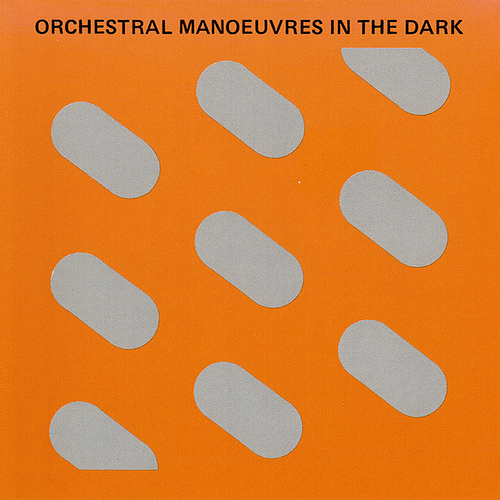
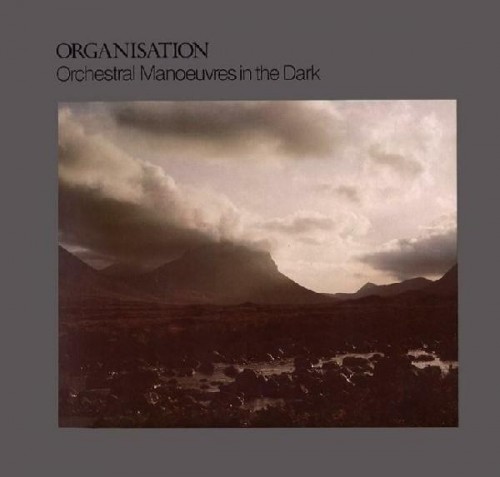
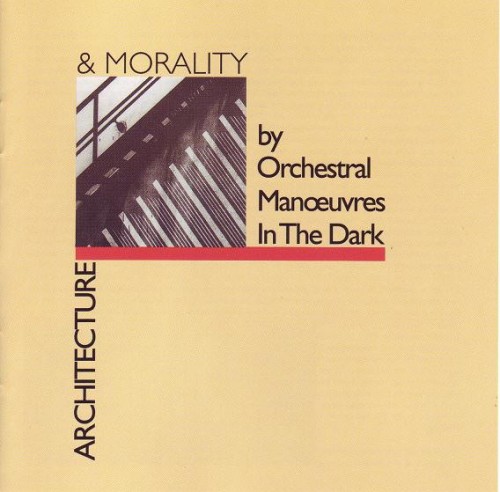
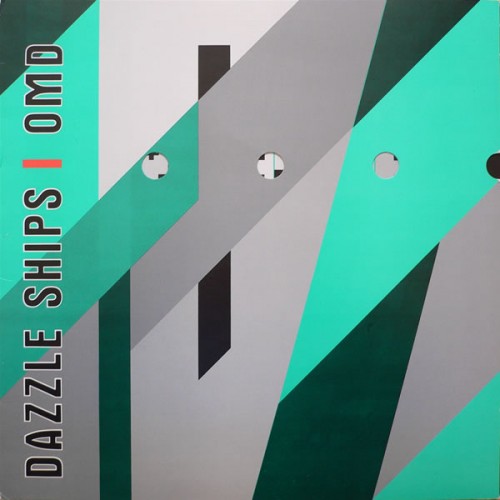
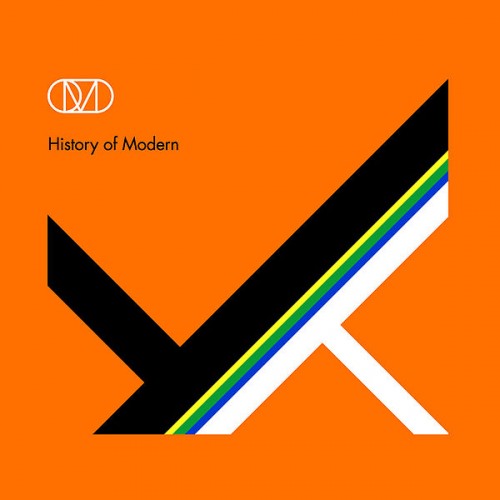
Thank you for posting this interview w/ Andy. We’ve been waiting patiently for so long for OMD’s return to the States and I’m pleased to read that they felt driven to return here as well. Highly looking forward to “Forever Live and Die” as well as “Dreaming” two mildly successful radio hits from the late ’80s. Hopefully Andy will sing something off of “Sugar Tax”, another great OMD record.
Great interview, Mickey! Guess I’ll see you at the concert tomorrow! :-)
Pingback: Pop Music Video Blog » Music: OMD At Terminal 5, First US Show in 23 Years! - Huffington Post (blog)
Pingback: Pop Music Video Blog » OMD at Terminal 5, First US Show in 23 Years - Huffington Post (blog)
Pingback: Pop Music Video Blog » OMD keeps revival in perspective - The Detroit News
Agreed, Dazzle Ships is their best album.
Pingback: We Love Music: Orchestral Manoeuvres In The Dark @ 9:30 Club, 3/10/11 » We Love DC
Listen to your favorite music in pop and hip hop. We have up to date music and music videos from your favorite entertainers. All Exclusive Music is your number one source for entertainment.